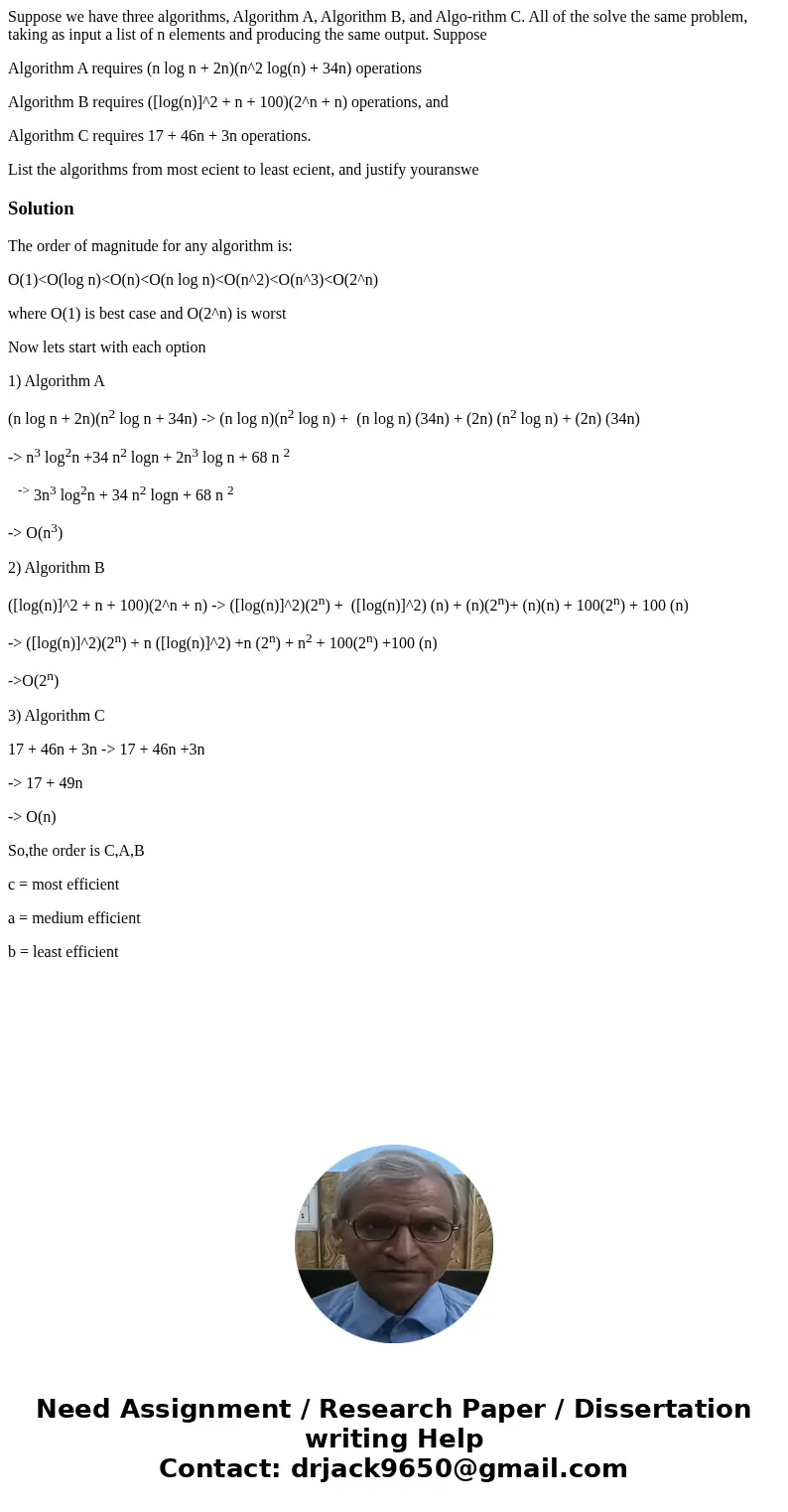Suppose we have three algorithms Algorithm A Algorithm B and
Suppose we have three algorithms, Algorithm A, Algorithm B, and Algo-rithm C. All of the solve the same problem, taking as input a list of n elements and producing the same output. Suppose
Algorithm A requires (n log n + 2n)(n^2 log(n) + 34n) operations
Algorithm B requires ([log(n)]^2 + n + 100)(2^n + n) operations, and
Algorithm C requires 17 + 46n + 3n operations.
List the algorithms from most ecient to least ecient, and justify youranswe
Solution
The order of magnitude for any algorithm is:
O(1)<O(log n)<O(n)<O(n log n)<O(n^2)<O(n^3)<O(2^n)
where O(1) is best case and O(2^n) is worst
Now lets start with each option
1) Algorithm A
(n log n + 2n)(n2 log n + 34n) -> (n log n)(n2 log n) + (n log n) (34n) + (2n) (n2 log n) + (2n) (34n)
-> n3 log2n +34 n2 logn + 2n3 log n + 68 n 2
-> 3n3 log2n + 34 n2 logn + 68 n 2
-> O(n3)
2) Algorithm B
([log(n)]^2 + n + 100)(2^n + n) -> ([log(n)]^2)(2n) + ([log(n)]^2) (n) + (n)(2n)+ (n)(n) + 100(2n) + 100 (n)
-> ([log(n)]^2)(2n) + n ([log(n)]^2) +n (2n) + n2 + 100(2n) +100 (n)
->O(2n)
3) Algorithm C
17 + 46n + 3n -> 17 + 46n +3n
-> 17 + 49n
-> O(n)
So,the order is C,A,B
c = most efficient
a = medium efficient
b = least efficient

 Homework Sourse
Homework Sourse